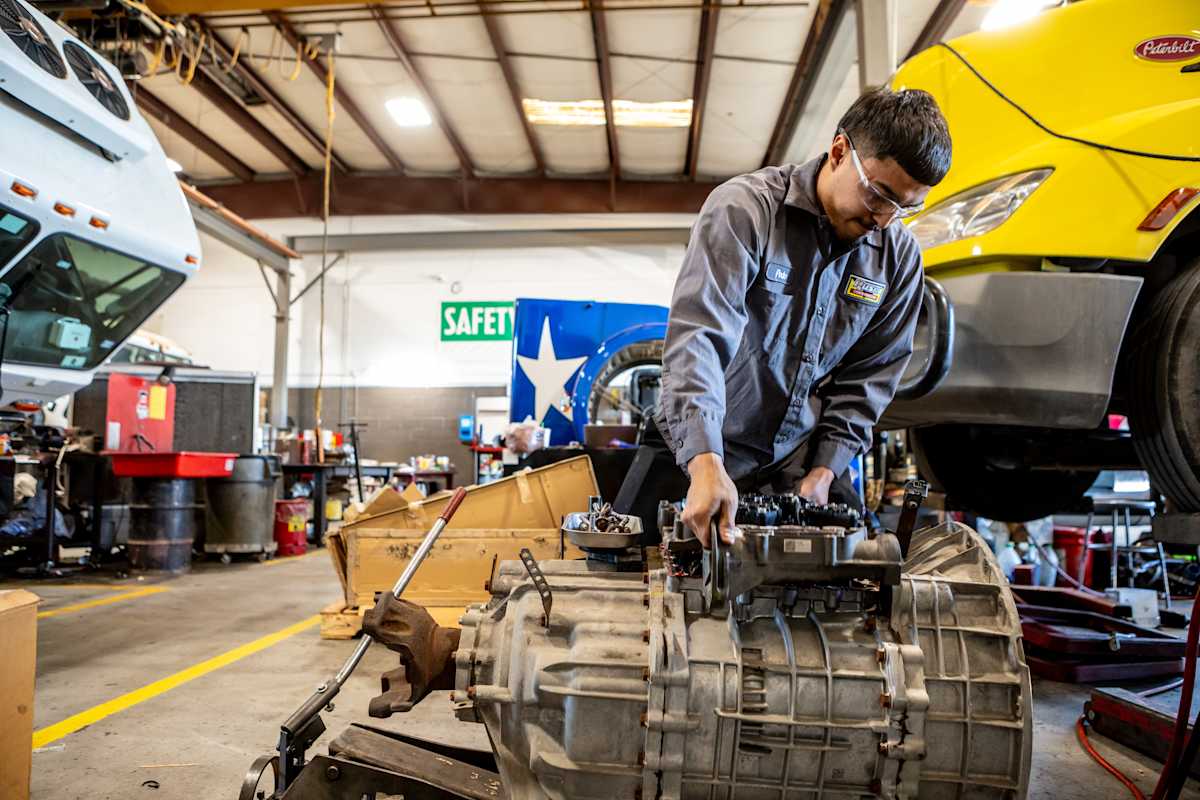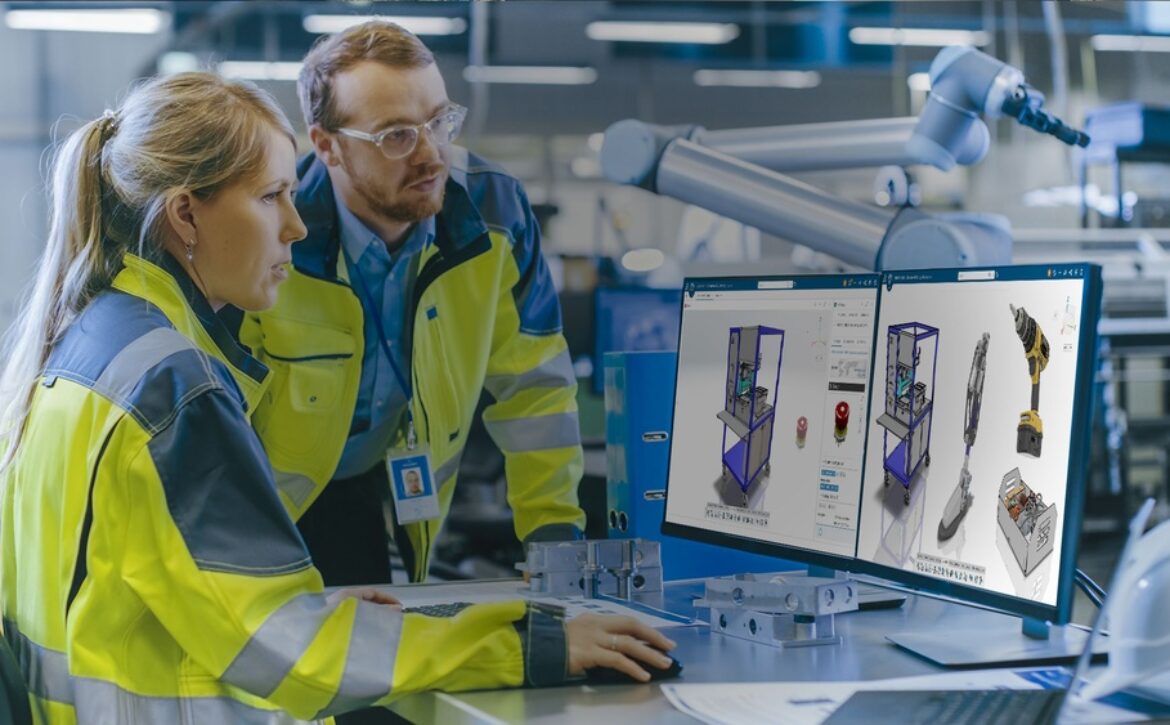
How to Become a Hgv Mechanic Course: Step-by-Step Guide
Are you passionate about trucks and heavy vehicles? Do you enjoy fixing things and solving complex mechanical problems?
If so, a career as an HGV (Heavy Goods Vehicle) mechanic might be the perfect fit for you. In this guide, we’ll explore how you can turn your interest in mechanics into a rewarding career. We’ll walk you through the steps to enroll in a course that will equip you with the skills and knowledge you need.
Imagine having the expertise to keep massive trucks running smoothly and the satisfaction of knowing you’re essential to the logistics that power our economy. By the end of this article, you’ll know exactly how to get started on this exciting career path. Keep reading to discover how you can make this dream a reality.
Hgv Mechanic Career Path
The journey to becoming an HGV mechanic is filled with opportunities for those passionate about heavy vehicles and engines. This career path offers a fulfilling experience, combining technical skills with problem-solving abilities. Whether you are just starting or contemplating a switch, understanding the essence of an HGV mechanic’s role can guide your decision.
Role Of An Hgv Mechanic
As an HGV mechanic, you are the backbone of the transport industry. Your role involves maintaining and repairing heavy goods vehicles to ensure they run safely and efficiently. You might find yourself diagnosing engine problems, fixing brakes, or replacing faulty parts.
The satisfaction of knowing you’ve contributed to the smooth operation of these massive vehicles is unparalleled. Imagine being the person who ensures that every truck on the road is safe for long hauls. Wouldn’t that be a rewarding experience?
Skills Required
To excel as an HGV mechanic, you need a mix of technical and soft skills. Understanding the mechanics of heavy vehicles is crucial. You should be able to diagnose issues quickly and efficiently.
Beyond technical skills, attention to detail is vital. Small errors can lead to big problems, so precision is your ally. Communication skills also play a role. You need to explain complex issues to customers who might not understand technical jargon.
Are you ready to hone these skills and make a tangible impact in the world of transportation? With dedication and the right training, you can become an indispensable part of this exciting field.
Educational Requirements
Becoming an HGV mechanic involves gaining specific educational qualifications. You need to have a strong foundation in mechanical engineering and automotive technology. Understanding engines and systems is crucial. Here, we’ll explore the essential qualifications and recommended courses.
Essential Qualifications
First, a basic understanding of vehicle mechanics is vital. Many start with a high school diploma or equivalent. Mathematics and physics are useful subjects. They help you grasp technical concepts better. Apprenticeships are popular among aspiring mechanics. They offer hands-on experience and mentorship. Gaining a Level 2 or Level 3 NVQ in vehicle maintenance is beneficial. It provides a structured learning path.
Recommended Courses
Courses in automotive engineering enhance skills. They cover engine management and diagnostics. Look for programs accredited by reputable organizations. The Institute of the Motor Industry (IMI) offers recognized certifications. Diesel technology courses focus on heavy vehicles. They are crucial for an HGV mechanic. Consider courses in electrical systems and hydraulics too. They broaden your expertise and improve job prospects.
Gaining Practical Experience
Embarking on a journey to become an HGV mechanic involves more than just classroom learning. Gaining practical experience is crucial in bridging the gap between theory and real-world application. This hands-on exposure not only enhances your skills but also boosts your confidence, preparing you for the dynamic challenges of the job.
Apprenticeship Programs
Apprenticeship programs offer a structured pathway to gaining invaluable experience. These programs blend classroom instruction with real-world work, allowing you to learn while you earn.
Imagine working alongside seasoned mechanics, absorbing their knowledge and techniques. You’ll tackle actual vehicle issues, which sharpens your problem-solving skills.
These programs often span several years, giving you ample time to master the trade. This extended exposure ensures that you’re not just learning the basics, but also the nuances of HGV mechanics.
On-the-job Training
On-the-job training is another crucial aspect of gaining practical experience. It provides you with the opportunity to work in a real workshop environment, applying what you’ve learned in your course.
This type of training immerses you in daily tasks, from routine maintenance to complex repairs. You’ll gain firsthand experience in diagnosing issues and implementing solutions.
What challenges might you face in a bustling workshop? Each day brings new learning opportunities, teaching you adaptability and resilience in this ever-evolving field.
Whether through apprenticeship or on-the-job training, practical experience is pivotal. How will you leverage these opportunities to carve out your path as a skilled HGV mechanic?

Certifications And Licensing
Embarking on a journey to become a Heavy Goods Vehicle (HGV) mechanic is exciting and full of opportunities. One crucial aspect of your training is understanding the certifications and licensing required. These credentials not only enhance your skills but also ensure you are qualified and recognized in the industry. Let’s delve into the necessary certifications and the licensing process that will pave the way for your career as an HGV mechanic.
Necessary Certifications
As an aspiring HGV mechanic, certifications are your stepping stones to success. They validate your skills and knowledge, making you a credible professional in the field. Imagine walking into a garage with confidence, knowing you have the credentials to back up your expertise.
Start with a Level 2 Certificate in Heavy Vehicle Maintenance. This certification covers the basics and is essential for anyone new to the field. You’ll learn about engines, transmissions, and electronic systems. It’s like building the foundation of a house before adding the roof.
Once you have the basics down, consider advancing to a Level 3 Diploma. This qualification dives deeper, covering more complex systems and diagnostic techniques. With this diploma, you’ll be able to troubleshoot like a pro, saving your clients time and money.
Licensing Process
Licensing is the next important step in your journey. It assures employers and clients that you meet industry standards and can safely perform your duties. But what does it take to get licensed?
Begin by passing a theory test that assesses your understanding of vehicle systems and safety protocols. It’s like proving you know the rules of the road before you start driving. This test ensures that you have the theoretical knowledge to handle HGVs responsibly.
After the theory test, you’ll need hands-on experience. Many mechanics share stories of the first time they worked on a real HGV, feeling the thrill of applying their knowledge practically. This stage involves supervised practice, where you demonstrate your skills in a real-world setting.
Finally, you’ll undergo a practical assessment. This is your chance to showcase your abilities, demonstrating that you can perform repairs and maintenance independently. Passing this assessment is your ticket to becoming a licensed HGV mechanic.
Are you ready to take the plunge into this rewarding career? With the right certifications and licenses, you’ll be well-equipped to tackle the challenges and enjoy the rewards of being an HGV mechanic.
Job Search Strategies
Finding a job as an HGV mechanic requires smart strategies. Competition can be tough. A well-planned approach can make a big difference. Let’s explore some effective job search strategies.
Networking Tips
Networking is crucial. Connect with other mechanics. Attend industry events. Join online forums related to vehicle mechanics. Participate in discussions. Share your experiences. This builds your reputation.
Reach out to your training instructors. They often have connections in the industry. Ask for recommendations or job leads. Engage with professionals on platforms like LinkedIn. Maintain regular communication.
Resume And Interview Preparation
Your resume should be clear and concise. Highlight your skills and training. Mention any certifications you hold. Tailor your resume for each job application. Use specific keywords from job descriptions.
Prepare thoroughly for interviews. Practice common interview questions. Focus on your strengths. Be ready to discuss your training and experiences. Dress professionally for the interview. Show enthusiasm for the role.
Career Advancement Opportunities
Becoming a HGV mechanic opens doors to a wide range of career opportunities. With specialized skills, mechanics can progress to higher roles in the industry. Training courses equip them with the knowledge needed for various advancements. Let’s explore the potential career paths available.
Specialization Options
Mechanics can choose to specialize in specific vehicle systems. Focus on engines, brakes, or electrical systems. Specialization can lead to roles like diagnostic technicians. These roles often come with increased responsibility. Specializing enhances expertise and can boost job satisfaction.
Continuing Education
Continuing education is key for career growth. Staying updated with the latest technology is crucial. Many courses offer advanced training sessions. These sessions help mechanics learn new skills. Advanced training can lead to supervisory roles. It also prepares them for management positions. Continuous learning keeps mechanics competitive in the job market.

Frequently Asked Questions
What Qualifications Do I Need For Hgv Mechanic?
To become an HGV mechanic, you typically need a relevant vocational qualification. This could be a Level 3 diploma in Heavy Vehicle Maintenance. Some employers may also require prior experience or an apprenticeship. Hands-on training is crucial for gaining the necessary skills and expertise in this field.
How Long Is An Hgv Mechanic Course?
An HGV mechanic course usually lasts between two to three years. This duration includes classroom instruction and hands-on training. Some programs may offer accelerated options, depending on prior experience. Apprenticeships can also vary in length based on employer requirements and individual progress.
Can I Become An Hgv Mechanic Without Experience?
Yes, you can become an HGV mechanic without prior experience. Many courses and apprenticeships are designed for beginners. They provide essential training and hands-on experience. However, a keen interest in mechanics and problem-solving skills can be highly beneficial for success in this career.
What Is The Cost Of Hgv Mechanic Training?
The cost of HGV mechanic training varies based on location and institution. On average, it ranges from £1,000 to £4,000. Some apprenticeships may offer training at reduced costs or even for free. Financial aid or payment plans may also be available to ease the burden.
Conclusion
Becoming an HGV mechanic opens doors to many job opportunities. The right course helps you learn essential skills. With hands-on training, you gain real-world experience. This builds confidence. Employers value qualified mechanics. Completing a course can boost your career prospects.
It’s a rewarding path for those interested in vehicles. Passion and dedication are key to success. Choose a course that fits your needs and schedule. Start your journey today. The road to becoming an HGV mechanic awaits you. Remember, every expert was once a beginner.
Take the first step with confidence.





